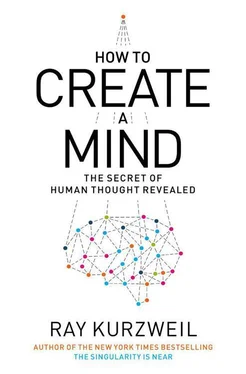The observations and experiments I have cited above constitute thought experiments on the issue of free will, a subject that, like the topic of consciousness, has been debated since Plato. The term “free will” itself dates back to the thirteenth century, but what exactly does it mean?
The Merriam-Webster dictionary defines it as the “freedom of humans to make choices that are not determined by prior causes or by divine intervention.” You will notice that this definition is hopelessly circular: “Free will is freedom….” Setting aside the idea of divine intervention’s standing in opposition to free will, there is one useful element in this definition, which is the idea of a decision’s “not [being] determined by prior causes.” I’ll come back to that momentarily.
The Stanford Encyclopedia of Philosophy states that free will is the “capacity of rational agents to choose a course of action from among various alternatives.” By this definition, a simple computer is capable of free will, so it is less helpful than the dictionary definition.
Wikipedia is actually a bit better. It defines free will as “the ability of agents to make choices free from certain kinds of constraints…. The constraint of dominant concern has been…determinism.” Again, it uses the circular word “free” in defining free will, but it does articulate what has been regarded as the principal enemy of free will: determinism . In that respect the Merriam-Webster definition above is actually similar in its reference to decisions that “are not determined by prior causes.”
So what do we mean by determinism? If I put “2 + 2” into a calculator and it displays “4,” can I say that the calculator displayed its free will by deciding to display that “4”? No one would accept that as a demonstration of free will, because the “decision” was predetermined by the internal mechanisms of the calculator and the input. If I put in a more complex calculation, we still come to the same conclusion with regard to its lack of free will.
How about Watson when it answers a Jeopardy! query? Although its deliberations are far more complex than those of the calculator, very few if any observers would ascribe free will to its decisions. No one human knows exactly how all of its programs work, but we can identify a group of people who collectively can describe all of its methods. More important, its output is determined by (1) all of its programs at the moment that the query is posed, (2) the query itself, (3) the state of its internal parameters that influence its decisions, and (4) its trillions of bytes of knowledge bases, including encyclopedias. Based on these four categories of information, its output is determined. We might speculate that presenting the same query would always get the same response, but Watson is programmed to learn from its experience, so there is the possibility that subsequent answers would be different. However, that does not contradict this analysis; rather, it just constitutes a change in item 3, the parameters that control its decisions.
So how exactly does a human differ from Watson, such that we ascribe free will to the human but not to the computer program? We can identify several factors. Even though Watson is a better Jeopardy! player than most if not all humans, it is nonetheless not nearly as complex as a human neocortex. Watson does possess a lot of knowledge, and it does use hierarchical methods, but the complexity of its hierarchical thinking is still considerably less than that of a human. So is the difference simply one of the scale of complexity of its hierarchical thinking? There is an argument to be made that the issue does come down to this. In my discussion of the issue of consciousness I noted that my own leap of faith is that I would consider a computer that passed a valid Turing test to be conscious. The best chatbots are not able to do that today (although they are steadily improving), so my conclusion with regard to consciousness is a matter of the level of performance of the entity. Perhaps the same is true of my ascribing free will to it.
Consciousness is indeed one philosophical difference between human brains and contemporary software programs. We consider human brains to be conscious, whereas we do not— yet —attribute that to software programs. Is this the factor we are looking for that underlies free will?
A simple mind experiment would argue that consciousness is indeed a vital part of free will. Consider a situation in which someone performs an action with no awareness that she is doing it—it is carried out entirely by nonconscious activity in that person’s brain. Would we regard this to be a display of free will? Most people would answer no. If the action was harmful, we would probably still hold that person responsible but look for some recent conscious acts that may have caused that person to perform actions without conscious awareness, such as taking one drink too many, or just failing to train herself adequately to consciously consider her decisions before she acted on them.
According to some commentators, the Libet experiments argued against free will by highlighting how much of our decision making is not conscious. Since there is a reasonable consensus among philosophers that free will does imply conscious decision making, it appears to be one prerequisite for free will. However, to many observers, consciousness is a necessary but not sufficient condition. If our decisions—conscious or otherwise—are predetermined before we make them, how can we say that our decisions are free? This position, which holds that free will and determinism are not compatible, is known as incompatibilism. For example, American philosopher Carl Ginet (born in 1932) argues that if events in the past, present, and future are determined, then we can be considered to have no control over them or their consequences. Our apparent decisions and actions are simply part of this predetermined sequence. To Ginet, this rules out free will.
Not everyone regards determinism as being incompatible with the concept of free will, however. The compatibilists argue, essentially, that you’re free to decide what you want even though what you decide is or may be determined. Daniel Dennett, for example, argues that while the future may be determined from the state of the present, the reality is that the world is so intricately complex that we cannot possibly know what the future will bring. We can identify what he refers to as “expectations,” and we are indeed free to perform acts that differ from these expectations. We should consider how our decisions and actions compare to these expectations, not to a theoretically determined future that we cannot in fact know. That, Dennett argues, is sufficient for free will.
Gazzaniga also articulates a compatibilist position: “We are personally responsible agents and are to be held accountable for our actions, even though we live in a determined world.” 17 A cynic might interpret this view as: You have no control over your actions, but we’ll blame you anyway.
Some thinkers dismiss the idea of free will as an illusion. Scottish philosopher David Hume (1711–1776) described it as simply a “verbal” matter characterized by “a false sensation or seeming experience.” 18 German philosopher Arthur Schopenhauer (1788–1860) wrote that “everyone believes himself a priori to be perfectly free, even in his individual actions, and thinks that at every moment he can commence another manner of life…. But a posteriori , through experience, he finds to his astonishment that he is not free, but subjected to necessity, that in spite of all his resolutions and reflections he does not change his conduct, and that from the beginning of his life to the end of it, he must carry out the very character which he himself condemns.” 19
Читать дальше












